How an Israel visit and a cancelled seminar put Indonesia’s largest Muslim bodies under public scrutiny
The world’s largest Islamic organisation, Nahdlatul Ulama (NU) and Southeast Asia’s biggest mosque, Istiqlal in Jakarta, have both been in the spotlight following controversial incidents amid the continuing war in Gaza.
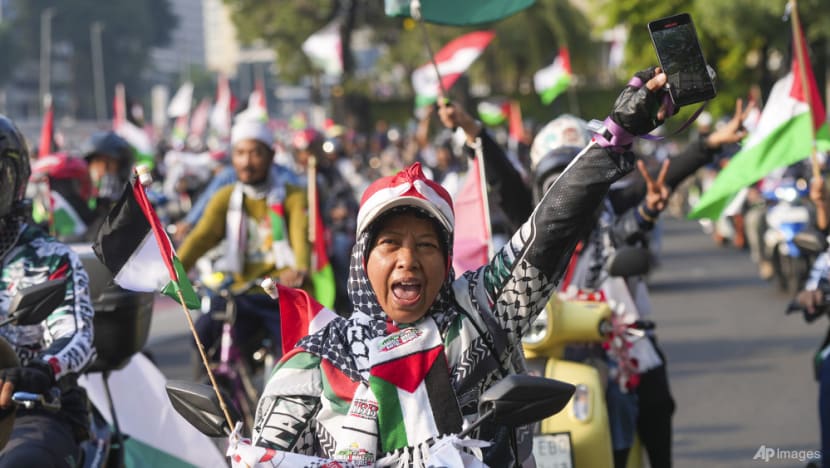
A protester shouts slogans during a rally in Jakarta, Indonesia, on Saturday, Jul 27, 2024, in support of the Palestinians in Gaza. (Photo: AP/Tatan Syuflana)

This audio is generated by an AI tool.
JAKARTA: Indonesia's main Muslim bodies have come under public scrutiny in the backlash following a controversial Israel visit by members of the world's largest Islamic organisation.
An internal investigation following the five Nahdlatul Ulama (NU) members' trip in June revealed that one was linked to a covert group with reported Israel ties.
Mr Zainul Maarif, along with three other NU members, Mr Mukti Ali Qusyairi, Mr Roland Gunawan, and Mr Sapri Saleh, were fired from the body’s Jakarta fatwa unit on Jul 18 for their reported involvement with the Ibrahim Heritage Study Center for Peace (RAHIM).
RAHIM is a Jakarta-based NGO aiming to promote cooperation among the three Abrahamic religions; Judaism, Christianity, and Islam.
Local media reported that RAHIM had alleged ties with Israel and that it is believed the NGO had approached the NU members for the trip.
Of the four, Mr Zainul was the only one who had visited Israel with NU colleagues last month.
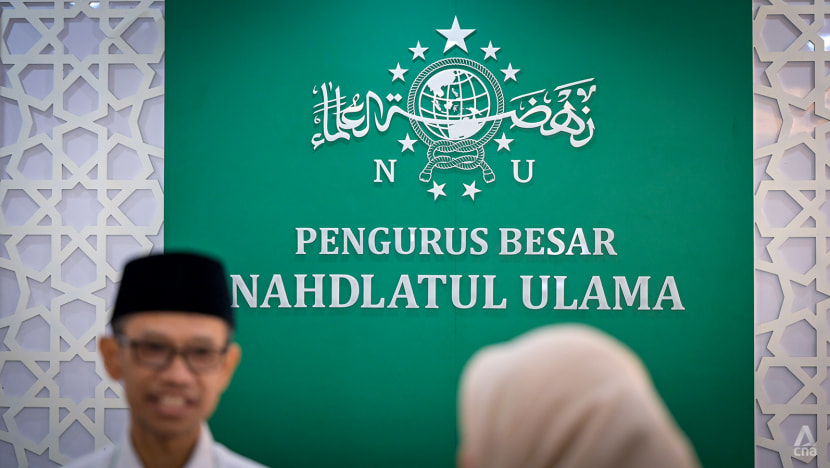
On Jul 27, the head of NU Jakarta Samsul Ma’arif told CNA that they had retracted the decision to sack Mr Sapri as it turns out he is only a Hebrew teacher and not a member of RAHIM.
Mr Sapri told CNA he had not been formally notified about the rectification but had heard rumours about it.
NU management also told CNA that RAHIM had a website which had used the logo of NU’s fatwa body. The site has since been taken offline.
CNA attempted to contact RAHIM for comment but was unable to reach it.
The fallout from the Israel visit has spread to other religious hubs and heightened sensitivities in the Muslim majority country.
Just days after the contentious trip, Istiqlal, Southeast Asia’s biggest mosque where Mr Sapri volunteers as a Hebrew teacher, also came under public scrutiny after it emerged that it had planned a seminar with Mr Ari Gordon as a speaker.
Mr Gordon is the director of Muslim-Jewish Relations at the American Jewish Committee (AJC).
The seminar was slated for Jul 17 at the Jakarta-based mosque but was cancelled last minute following public criticism online.
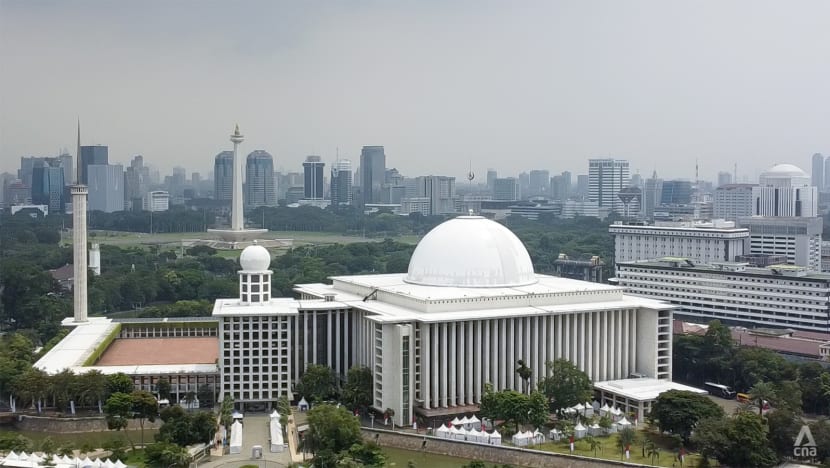
As people started to question the intentions of having Mr Ari as a speaker, the Grand Imam of Istiqlal Nasaruddin Umar said they had never planned the seminar.
"It (the seminar) was (planned) without my notice,” Mr Nasaruddin told CNNIndonesia.com on Jul 17.
He explained that the students of Istiqlal - the mosque offers tertiary programmes and free language courses - were on holiday, so it would not make sense to hold an event during the break as nobody would attend.
Since May, Istiqlal has offered free Hebrew lessons taught by Mr Sapri.
But the Hebrew teacher told CNA he does not know whether his class will resume once the school break ends in mid-August.
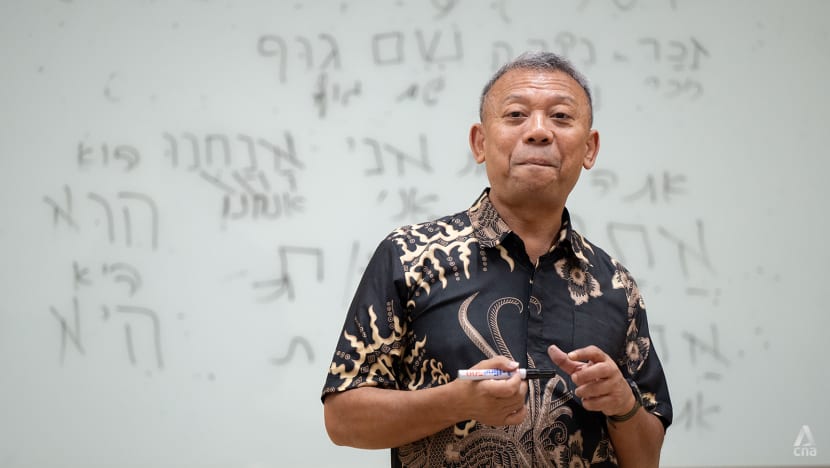
“I don’t know whether the programme will continue at Istiqlal. I hope they will once the situation has calmed down,” he said.
Mr Melvin Abrillian, a student of Mr Sapri’s Hebrew class at Istiqlal, also shares the same view.
“I personally want the class to continue because we have been learning for almost three months, and it’s a shame it stopped midway (through the course).
“Secondly, because the aim of studying Hebrew is to learn the relationship of Islam, Christianity, and Judaism so we can uphold religious tolerance in Muslim-majority Indonesia,” he said.
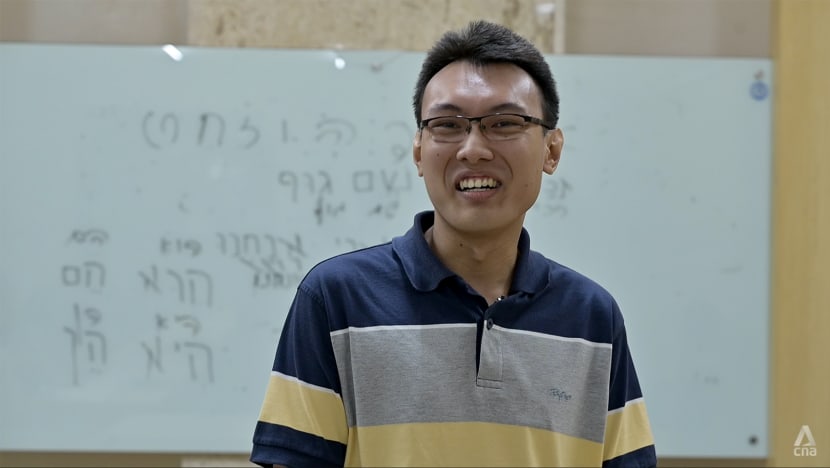
A CONTROVERSIAL VISIT DURING TIMES OF WAR
The NU members, known as Nahdliyins, who went to Israel from Jun 30 to Jul 5 are Mr Zainul, Mr Munawir Aziz, Ms Nurul Bahrul Ulum, Ms Izza Annafisah Dania and Mr Sukron Makmun.
During their trip, they met with Israel’s President Isaac Herzog, sparking outrage throughout Indonesia, which with about 242 million followers of the Islamic faith, is among the world’s largest Muslim-majority countries.
Indonesia has no formal diplomatic ties with Israel and has repeatedly condemned it for killing thousands of civilians.
“Indonesia does not have diplomatic relations with Israel,” said Mr Ujang Komarudin, a political analyst from Jakarta’s Al Azhar University, when discussing possible reasons behind the backlash.
“The state's stance - the Indonesian government - is clear: It supports the independence of Palestine,” he added.
The visit sparked anger in the archipelago a few weeks later when Mr Zainul shared a photo of the group with Mr Herzog on his Instagram account on Jul 7.
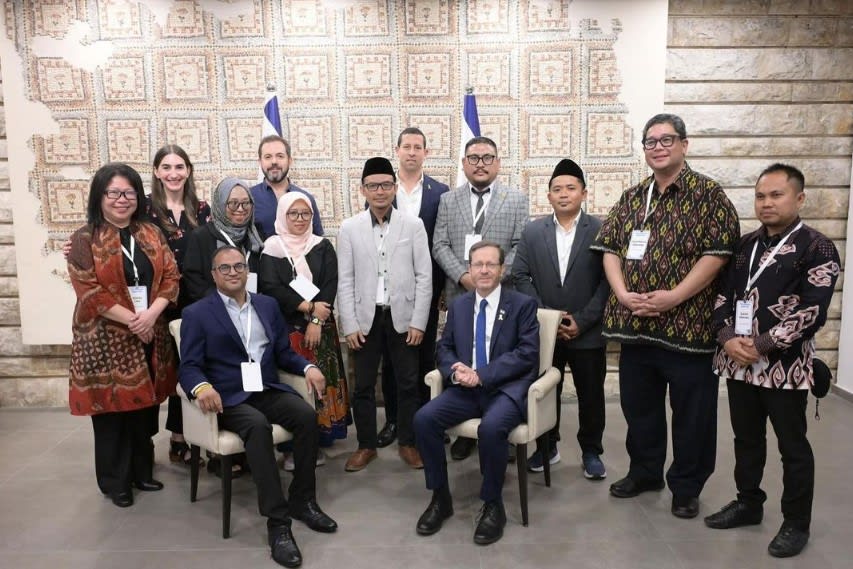
In his Instagram caption, Mr Zainul said they spoke about the Hamas-Israel conflict and relations between Indonesia and Israel.
The post went viral with public anger and condemnation that forced Mr Zainul to disable the comments section of his account. He has since deleted the post.
Mdm Hurriyah, a political lecturer at the University of Indonesia, who like many Indonesians goes by one name, said that the trip provoked such strong reactions because it “was held amid Israel’s genocide, and the Indonesian government has condemned it.”
About 39,000 people have been killed in Palestine since October, according to local health authorities.
Professor Asep Saepudin Jahar, chancellor of Universitas Islam Negeri (UIN) Syarif Hidayatullah Jakarta, who specialises in the sociology of Islamic law, said that the NU members had lacked sensitivity to the wider political situation.
“Even without war, a visit to Israel is a controversial matter (for Indonesians), let alone during war or attacks on Palestinian citizens.
“And they do not understand that they are being used or the situation is being politicised as it appears Israel wants to get support from Indonesian Muslims (by having the NU members in Israel),” he said.
On Jul 16, NU’s general chairman Yahya Cholil Staquf held a press conference at the organisation's headquarters in Jakarta where he apologised for the uproar.
"Whatever happens, as the general chairman of NU, I apologise for the mistakes made by the NU members and on their behalf to the wider community.
“Hopefully, they (the wider community) are willing to forgive. Hopefully, it will not happen again," said Mr Yahya, who was the subject of public criticism in 2018 for meeting with Israeli Prime Minister Benjamin Netanyahu.
As the quintet has different roles within NU, Mr Yahya said he would let the relevant parties decide how to proceed with the individuals who went to Israel.
Mr Sukron told CNA the trip was solely initiated by civil society and not sponsored by the (Israeli) government.
“We went to Israel not only to visit the president, but there were many other activities to help us better understand the situation and possibilities of how Indonesian civil society can help.
“From our perspective, since Indonesia has no diplomatic relations with Israel, therefore civil society must render a concrete contribution to cease the war, or at least reach an armistice between parties in conflict because the victims are always civilians,” he said.
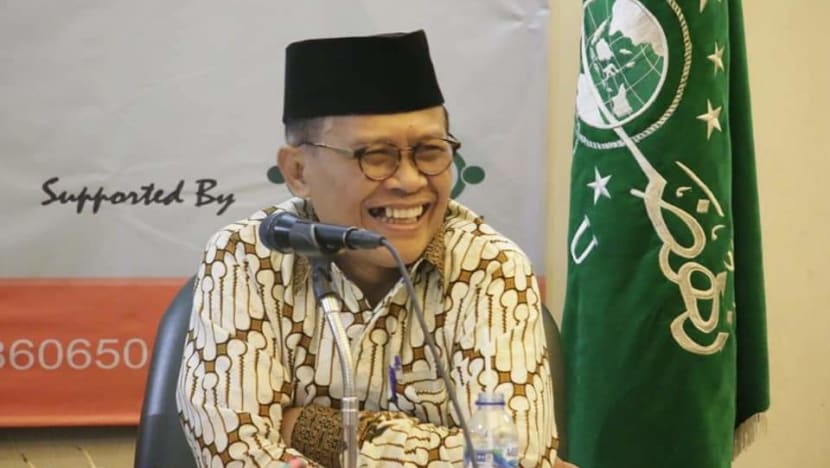
However, Mr Ahmad Suaedy, one of NU’s heads, told CNA that the group had not informed the organisation's management about their intentions to visit Israel.
Mr Ahmad highlighted that the issue is not about Israel as a state or the Jewish people, but it is about the genocide happening in Gaza.
He added that NU disagrees with both Israel’s and Hamas’ strategy, but that it considers the current situation in Gaza genocide by Israel.
“Our stance is clear. We are anti-genocide, and Israel is doing that, although there are Israelis who are anti-genocide,” said Mr Ahmad, who is also a dean of Islam Nusantara at Nahdlatul Ulama Indonesia University.
Consequently, Ms Izza and Ms Nurul resigned from their respective positions within NU, while Mr Sukron told CNA that he holds no managerial position within the organisation as his tenure as a deputy head of the NU chapter in Banten province ended in June.
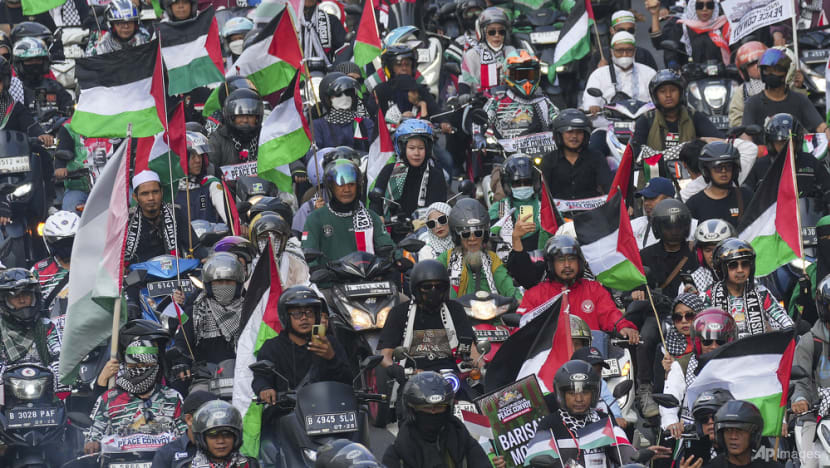
LESSONS LEARNED?
Following the controversy over the Nahdliyins' trip, Mr Ahmad said NU has reaffirmed that it should not work with organisations thought to have ties with Israel.
These include Jakarta-based Leimena Institute, the Institute for Global Engagement (IGE) and the American Jewish Committee (AJC).
Mr Ahmad said that the instruction was put in place in 2021, and after the latest case, NU decided to remind its members that it is still valid.
NU has about 150 million members, according to a speech made by NU’s general chairman Mr Yahya in 2022.
Therefore, it is difficult to track its members' everyday movements, but the leaders give instructions by circulating letters, said Mr Ahmad.
“We cannot tell every member one by one what to do,” said Mr Ahmad.
Despite the public resentment, Mr Sukron said that their mission was to achieve peace. Moving forward, they want to focus on that.
“Can we focus on the message of peace, the recognition of human suffering, and the need to build dialogue across the table and better understand each other?
“Civil society is in the position of doing that,” he said.
Meanwhile, Mr Sapri said as a Hebrew teacher, he has often been condemned by people in his network for teaching the official language of Israel.
But, he said, the latest incidents have taught him a valuable lesson.
“Intellectual narratives or academic arguments cannot contain emotions; that's how I see it,” he said, noting that everyone should think wisely before making decisions.


















